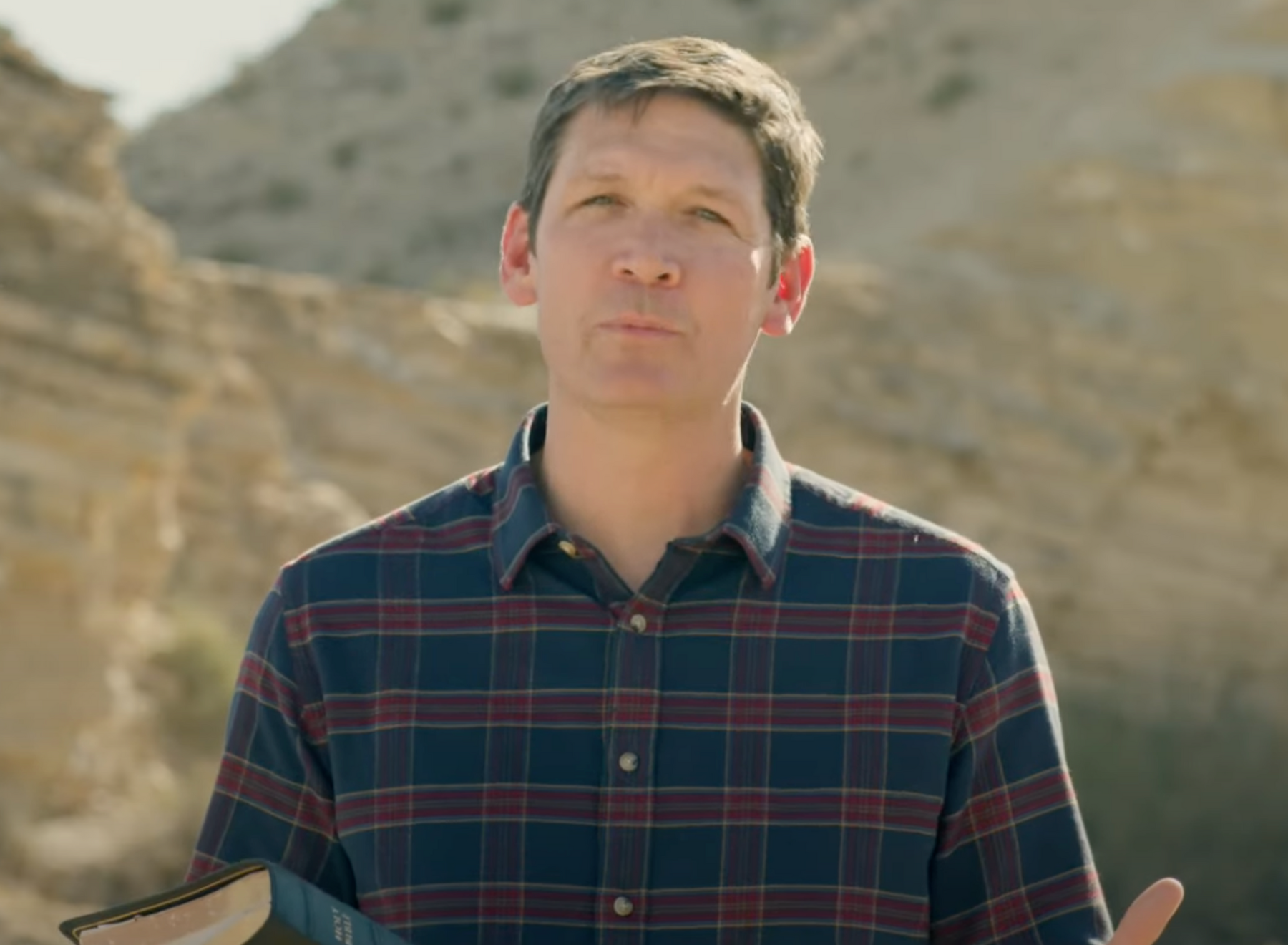Every single time my husband’s texts begin with the words “Did you hear about…” I brace myself for the latest celebrity pastor scandal. Typically, he attaches a link to the pastor’s apology — but I’ve come to expect these apologies to sound like PR spin, nothing like an authentic and contrite apology.
The latest pastoral apology that I’ve seen comes from Matt Chandler, the pastor of The Village Church and President of the Acts 29 church planting network, which was formerly led by controversial pastor Mark Driscoll. On a Sunday morning, while parishioners of The Village Church were likely expecting another message, Chandler stood at the pulpit and apologized, saying that he was stepping down – for now – as the lead pastor of the congregation. He admitted to engaging in inappropriate online interactions with a woman, apologized for his “unguarded and unwise” relationship with a woman who is not his wife, but he did say that the conversations were not romantic or sexual in nature.
You may unsubscribe from any of our newsletters at any time.
Chandler explained that a friend of the woman he was messaging approached him to call him out on his behaviour. This ultimately led to Chandler stepping down from his role temporarily. However, Chandler does not clearly apologize to the woman he interacted with online, or the woman who approached him. Instead, he talks about the impact of this situation on him and his family. His carefully crafted words lead to long and loud applause by congregants.
Chandler’s apology left me with plenty of questions and very little information about what happened. He has not said whether the woman he was interacting with was a member of his congregation. Many folks have speculated about what exactly went on between Chandler and the unnamed woman, but I’d rather discuss the biggest gap in Chandler’s message: a clear and direct apology to the women involved.
This isn’t a “Matt Chandler” problem, it’s a problem we see from many pastors who admit their misdeeds without acknowledging the harm they’ve caused. In the pastor’s confession, there is no acknowledgment of the power they wield in their position of authority. Chandler never mentions the fact that he’s the person in power – whether she is a member of his congregation or not – and that he used that power in a relationship with another woman.
More on Broadview:
- Why pastors should not be counselling their parishioners
- After more than 30 years, this clergy abuse survivor is finally being heard
- I was devoted to Mars Hill Church pastor Mark Driscoll’s sermons — now I’m a proud feminist
Bruxy Cavey, a former Canadian megachurch pastor who has now been arrested and charged with sexual assault, published a blog post titled “my confession” in March, shortly after resigning from his church. In it, he apologizes for what he calls an extramarital affair, however, the woman who came forward with allegations against him has said she believes that the relationship was not consensual, due to the power Cavey held over her. While Cavey does admit that he was irresponsible in his role as a pastor, and even mentions the dynamics of power and influence inherent in his role, he does not acknowledge the effects of his actions. Simply talking about power does not mean he understands the effects of it.
But problematic pastoral apologies aren’t just an issue in megachurches. In May, John B. Lowe II, the pastor of New Life Christian Church & World Outreach in Warsaw, Ind., confessed to a years-long extramarital affair with a congregant. Things took a shocking turn when a woman walked up to the stage and took the microphone. She alleged that Lowe raped her when she was 16, and that nothing about their relationship was consensual. Video of the scene has since garnered over a million views and has led to a public outcry against pastors who confess half-truths or turn themselves into victims without acknowledging the real pain they’ve caused.
But what exactly does a “good” apology look like? I was hard-pressed to find one, instead I came across pastors who offered half-apologies or even refused to apologize for substantiated claims against them – like Bill Hybels, former pastor of Willow Creek Community Church, who has faded into the background since his 2019 resignation.
Instead, pastoral apologies typically centre themselves and their families. They look contrite enough to garner empathy and compassion from their congregants – there’s a sliver of vulnerability that passes as contrition. But these apologies seem to avoid any true reflection on what led to the situation in the first place – an imbalance of power, often a man wielding his authority for his own gain. In a sense, the apology acts similarly, as the pastor uses their authority and the trust they’ve gained to cast themselves as a victim – while the alleged victim’s story remains untold and unacknowledged.
***
Brianna Bell is a writer in Guelph, Ont.













You’re addressing the issue as if you know the whole story.
1) Perhaps these men did apologize to the women, and they are now apologizing to the others who have been affected by their actions. (Namely their church)
2) Matthew 18:15 ff – Christ tells us how to interact when sin is involved between two people. Was this followed by either party? Did they go to the other privately, or did this “hit the news”, then dealt with?
3) The world LOVES when Christians fail. (Your husband’s comments at the beginning is proof).
4) Perhaps there is blame to the woman, we are never told the whole story, just what each party wants us to believe.
We need to acknowledge that “pastoral” failings are far from being the norm, but they are presented that way. Think of how many pastors there are in North America and note how many have succumbed to scandals.
We also need to realize that not all pastors are leading a church to fulfill God’s leading. They are there for their own fame, glory and the filling of pocketbooks. Acts 8:9-24; 2 Peter 2:1; Jude 4
I cannot comment on the article because I don’t know the full stories and the article is one person’s observation. However, if we are followers of Jesus’ teachings we must recognize that ALL of us fall short of the mark when it comes to the perfect example we have in Jesus. Simply because a person holds a particular office or position in a community does not make that person more virtuous than another. We all have needs, desires, fantasies, problems and a mixture of human emotional needs that serve to confound us. As Christians we are called to forgiveness, love, understanding and the desire to strive to be better. Some of us are better at controlling ourselves than others. In these times of social media and the internet it is no great problem to fall into “sin.” We all let our guard down. We all fall short. We are (last time I checked) all human and we need to take the time to dwell on what that means.
I agree, but my point wasn’t perhaps clear.
Those in leadership who fall short are a very small minority. It is the small percentage who fail that makes the press, making it seem like the normative.
Yes I agree. As my mom used to say…”it only takes one bad apple to spoil the barrel.” But, alas, we live in a punitive society. You can do a whole lot of good but someone is just waiting for that time when you do something bad.
A helpful article. Our world seems full of apologies right now from public figures of all sorts. It’s a necessary step when things go south but so often they feel like non-apologies or just inadequate. The writer has given helpful criteria for sorting through all that.
Hi Brianna,
Here’s an example of a good apology: lovingtheworld.com/apology. They’re rare as rare.